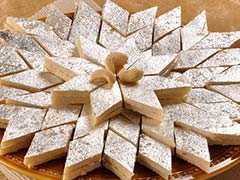Diwali 2018: 5 Diwali Sweets that May be Adulterated
Sarika Rana | Updated: November 02, 2018 19:22 IST
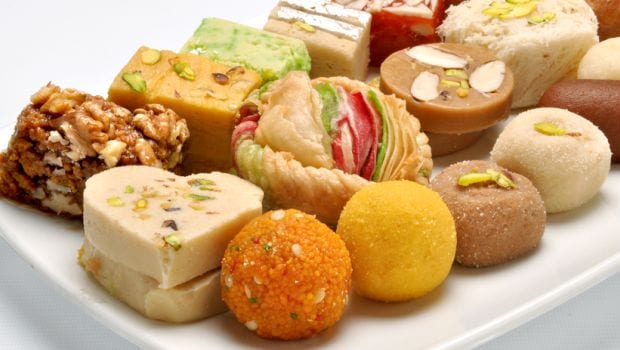
Indians all over the globe are gearing up to celebrate Diwali tomorrow. It's the season when gifts are exchanged and families and friends bond over delicious meals. No Diwali spread is ever complete without a variety of traditional sweets and mithai. All of us have been guilty, at some point or the other, of over-indulging in Diwali-ki-mithai; be it motichoor ke ladoo or the simple khoya barfi, kaju katli, pista barfi and so much more. Thanks to the festivities in the air, these become irresistible and before you realise it, you've polished off more than you would have liked! Most mithai shops are now loaded with Diwali sweets, these fly off the shelves as customer after customer walks out with kilos of mithai. However, do spend a few minutes mulling over what goes into the making of these traditional sweets; how are they actually made in bulk to meet the increasing demand and what is the quality of ingredients used? Increasing demand could often lead to some shops compromising on the quality through adulteration.
According to Ms. Anju Majeed, Senior Scientist and Director at Sami Labs, "Adulteration of sweets and adding artificial colors to make them more attractive has become a major health concern in the recent days. During Diwali the demand for these sweets goes up and this may increase the chances of your favorite sweets being adulterated with substandard flour, or low-grade fat, or oil. And there are equally high chances of you facing an increased health risk if you consume these sweets, which may range from diarrhea and vomiting to food poisoning."
Here are 5 sweets suggested by Ms. Majeed that you should be most careful of during the festival season:
1. Khoye ki Barfi
Most mithais that are consumed during festivities are made with khoya and it makes for one of the most adulterated foods that is used to prepare sweets. It is believed that some unscrupulous sellers may add wheat or rice flour (starch) to increase the quantity. So even if you are making a mithai with khoya, be careful and check for its purity.
(Also Read: How to tell if your Khoya is adulterated?)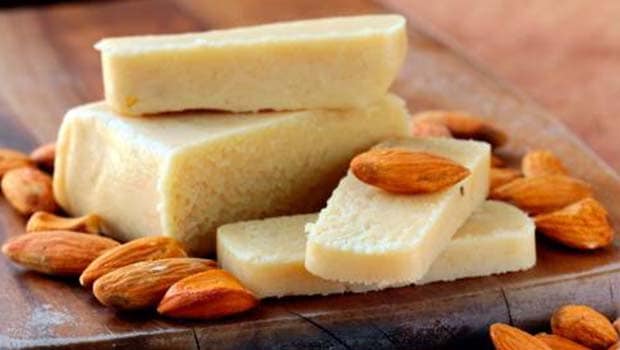 Most mithais that are consumed during festivities are made with khoya
Most mithais that are consumed during festivities are made with khoya2. Motichoor Ladoo
According to Dr. Saurabh Arora, Director of Auriga research and Arbro Pharmaceuticals, "most consumers buy sweets and savouries that give an impression of great taste. This is why vendors use bright and sometimes non-permitted colours of sweets and savouries. These vendors use artificial colours because they are less expensive, more stable and long lasting and give the product an appealing bright colour." Motichoor ladoo is one such mithai that must only be bought from reliable sellers this festive season.
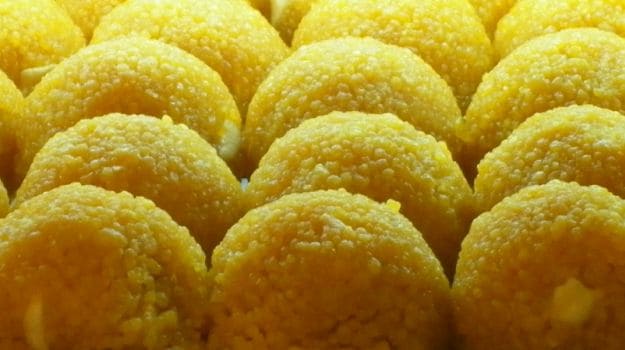 These vendors use artificial colours because they are less expensive, more stable and long lasting
These vendors use artificial colours because they are less expensive, more stable and long lasting3. Kaju Katli
Kaju katli has silver varq on it which adds to the appeal of this popular traditional mithai. According to Indian regulations, silver must be 99.9 percent pure if it is used as a food ingredient. However, considering the expensive metal that silver is, it may turn out that vendors use aluminium foils that only look like sliver varq. Therefore, it is good to make kaju katli at home in order to save yourself from the harmful effects of these fake substances.
(Also read: All that glitters is not Varq. How to check if it is adulterated?)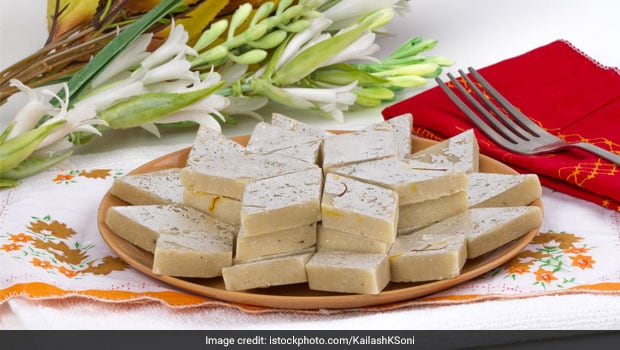 It is good to make kaju katli at home in order to save yourself from the harmful effects
It is good to make kaju katli at home in order to save yourself from the harmful effects
4. Kaju Pista Roll
If you think you are eating sweets made using real pista and cashews, you should probably think again. Not real nuts, what ends up being used mostly are artificial or synthetic flavours. Pistas and cashew nuts are expensive nuts, so this is done to cut costs and make the mithai last longer.
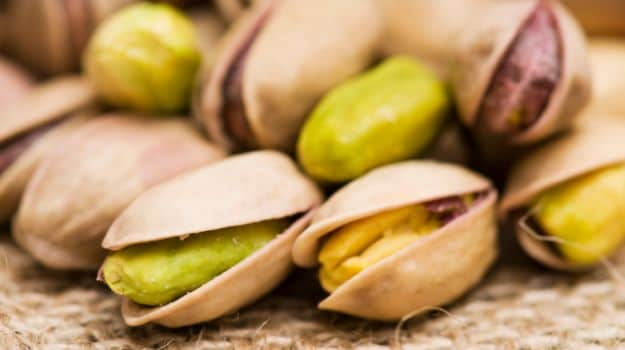 It is not the nuts they use in this mithai but just artificial or synthetic flavours
It is not the nuts they use in this mithai but just artificial or synthetic flavours
5. Paneer Barfi
The paneer that is used to make the barfi could have excessive corn starch in place of milk extract. In some cases, harmful chemicals and urea are also mixed in it. Therefore, it is imperative to take any paneer mithai from a trusted source or just make it at home.
While these are just a few mithais that are known to be highly adulterated, there are many others that are flooding the markets. Health experts suggest either switching to homemade sweets that don't need dairy products or just choose to eat alternatives like chocolates and nuts. Be careful of what you buy next and always buy your share of Diwali sweets from trusted vendors and seller.
Stay healthy and enjoy! Happy Diwali!
Comments
Related Videos
- Diwali 2018: Why Eat Adulterated Kaju Katli When You Can Make It At Home? (Recipe)
- Shah Rukh Khan's Fans Are Celebrating His 53rd Birthday With A Zero Themed Cake! (See Pic)
- Happy Birthday Shah Rukh Khan: 5 Heathy Foods The Zero Actor Eats To Stay Fit!
- Fast Food & Caf� Convention: India?s Premiere Platform For Cafes And QSRs Wraps Up Another Super Event
- Happy Birthday Aishwarya Rai Bachchan: 5 Diet And Beauty Secrets Of The Diva That You Can Steal!
- Hypertension: Orange Juice May Help Manage High Blood Pressure Levels
- Video: Ishaan Khatter Reacting To His Decadent Birthday Cake Is All Of Us!
- Happy Birthday Ileana D'Cruz: 6 Foodie Moments Of The Actor That Took Internet By Storm
- #NewRestaurantAlert: From New York To Khan Market: Baar Baar Makes Its India Debut
- Ananya Panday Had A Very Foodie 20th Birthday: Here's Proof! (See Pics)
